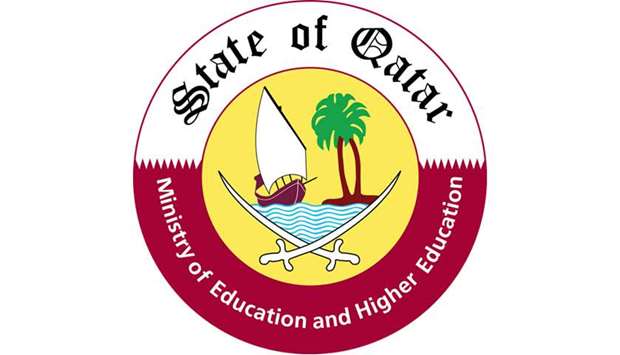The Ministry of Education and Higher Education has succeeded, with distinction, in completing the 2019-2020 academic year despite the coronavirus (Covid-19) pandemic, which halted education in most countries.
The Ministry implemented e-learning education to complete the academic year after parents and society feared the effects of the pandemic on the health and safety of their children, as well as a halt in education.
On March 23, students began their studies through the e-distance education system and the Ministry cancelled the end of the second semester tests for grades 1-11 and replaced it by conducting an evaluation process for these students, provided that general and specialised high school students take the end of the second semester tests as usual. These tests started on June 1 and end on June 13.
HE the Undersecretary of the Ministry of Education and Higher Education Dr Ibrahim bin Saleh al-Nuaimi said in an interview to Qatar News Agency (QNA) that the evaluation process and the standards taken for grades 1-11 was carried out in parallel with the education process through planning for daily and weekly assessments.
He added that they are continuous assessments covering all learning goals and emphasised the joint responsibility of students, teachers, parents, school administrations and the education affairs sector, pointing out that the Ministry has received positive indicators in this regard, and there is accountability for any failure of all parties involved in the evaluation process in the Ministry.
HE the Undersecretary added that the Ministry's option of distance education to complete the 2019-2020 academic year was successful because of the excellent infrastructure that it had built in the field of e-learning.
He pointed out that the Ministry has prepared the educational content for distance study for each of the academic levels, by filming and producing videos of daily lessons, with a focus on providing the student with the concepts and values of these lessons on electronic links via the digital platforms provided.
The Ministry also acknowledged the role of parents, and stressed the importance of the partnership between the guardian and the school in this regard, and provided them in the framework of ensuring the safety of students a number of useful advices on the practice of distance learning, in addition to preparing illustrative files and videos in detail on how to log in and out on the distance learning platforms for students and their parents.
With regard to distance learning for people with special needs, HE the Undersecretary said that the Ministry has provided educational materials that meet the needs of this group of students according to the level and type of disability. On the other hand, it directed the specialised schools to choose the best teachers for the specialised subjects in each school and instruct them to provide illustrated lessons for theoretical materials and practical workshops and raise them on the learning management system at the school site, as well as send text messages to parents to start broadcasting the lessons.
For the private schools too the evaluation process went well where the application rate reached 100%, indicating the multiplicity of systems used in private schools as a result of different experiences in the e-learning system, and the different policies adopted according to the special systems and curricula in each school, HE the Undersecretary confirmed .

